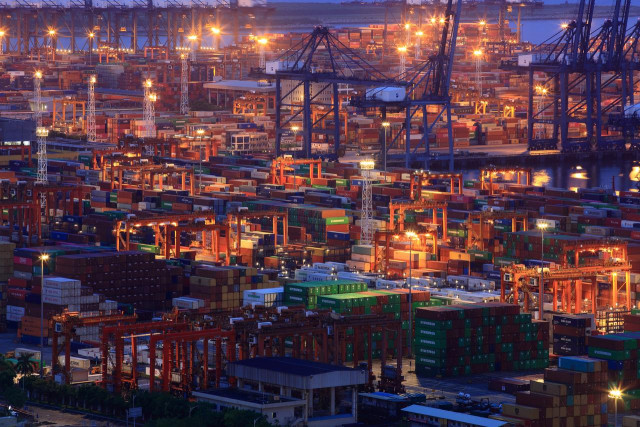Experts discuss changing trade rules
Commerce ministry official stresses need for boosting export of services

The political economy of trade is governed by trade policies and in the situation created by the Covid-19 pandemic many countries are using ad hoc restrictions on imports and exports, said Federation of Pakistan Chambers of Commerce and Industry (FPCCI) Standing Committee on WTO Affairs Convener MA Jabbar.
Speaking at a webinar on “Covid-19: Impact on the Political Economy of World Trading Rules”, he said, “As a result, meeting the domestic requirement is the preferred option against the restriction-free trading discipline in the political economy of world trading rules.”
Jabbar pointed out that in the recent past after receiving a grant from the World Bank, almost all the protective SROs for tariff differential support to domestic industrial goods manufacturing were scrapped in the country.
“These SROs were acting as a tariff differential protection - a bridge between tariff rates on import of finished goods and raw material for domestic production as import substitution.”
He said economic development after the Covid-19 pandemic appeared to be more inclined towards ad hoc policy arrangements of increasing tariffs ie additional customs duty, regulatory duty and anti-dumping duties at the beginning.
On the other side, he said, conventional exports from Pakistan with resource-based comparative advantage and subsidies were not picking up and each and every review of the country’s trade policy by the World Trade Organisation (WTO) had called for diversification of the economy.
Also speaking on the occasion, Ministry of Commerce Joint Secretary (WTO Wing) Aisha Humera Moriani said since the gradual shift in dynamics of international politics, the dynamics of global trade had also changed with time.
Published in The Express Tribune, October 27th, 2020.
Like Business on Facebook, follow @TribuneBiz on Twitter to stay informed and join in the conversation.



















COMMENTS
Comments are moderated and generally will be posted if they are on-topic and not abusive.
For more information, please see our Comments FAQ